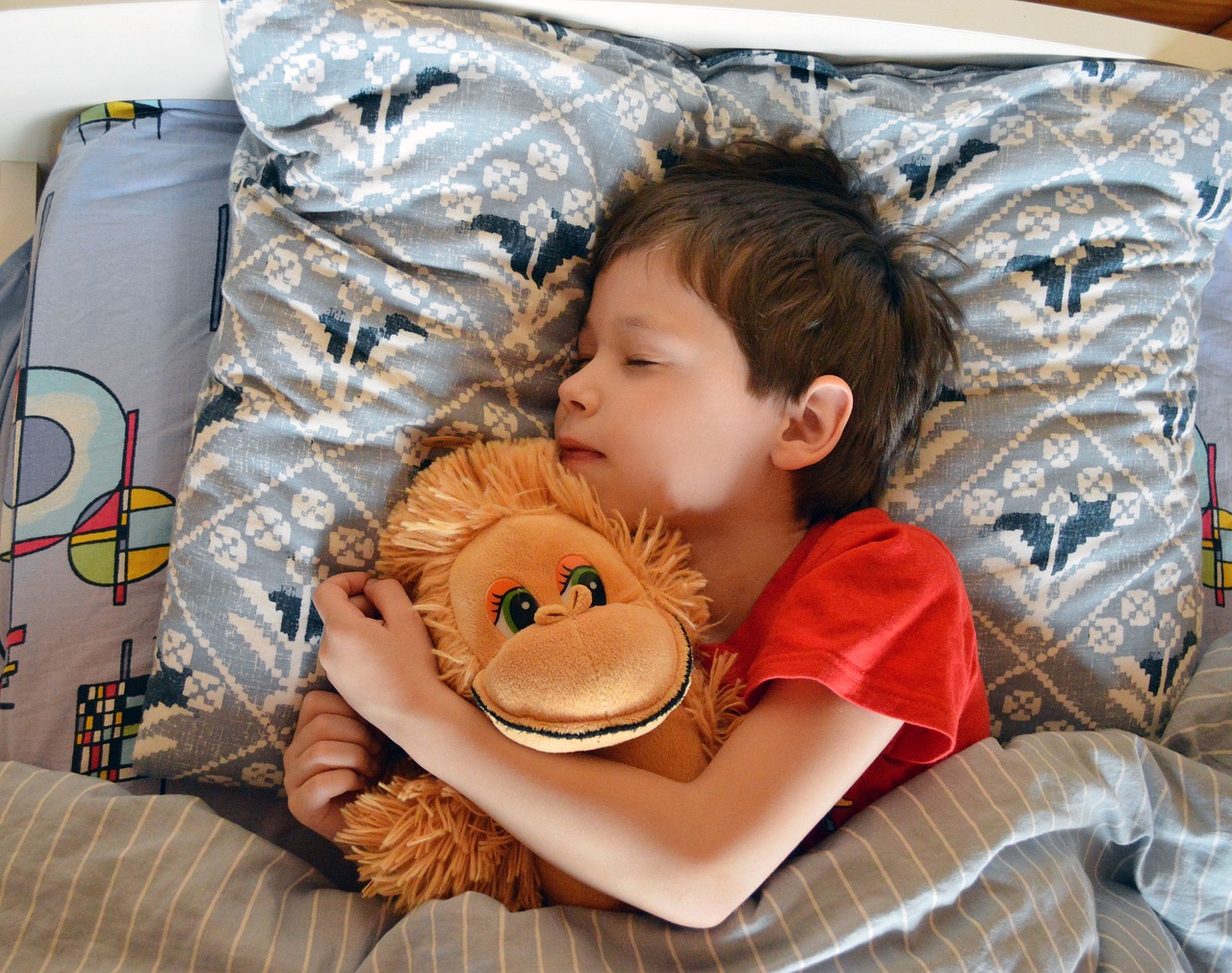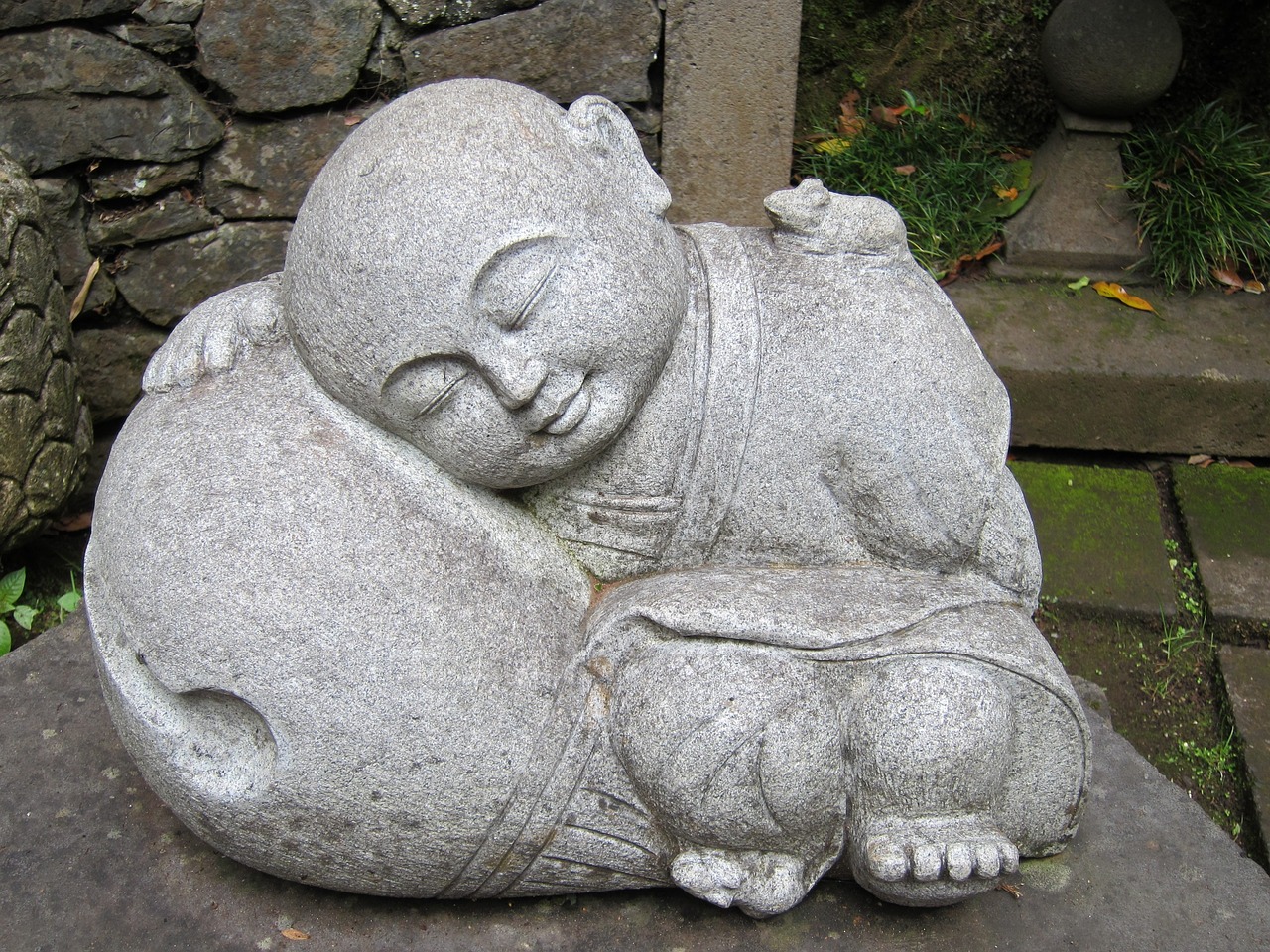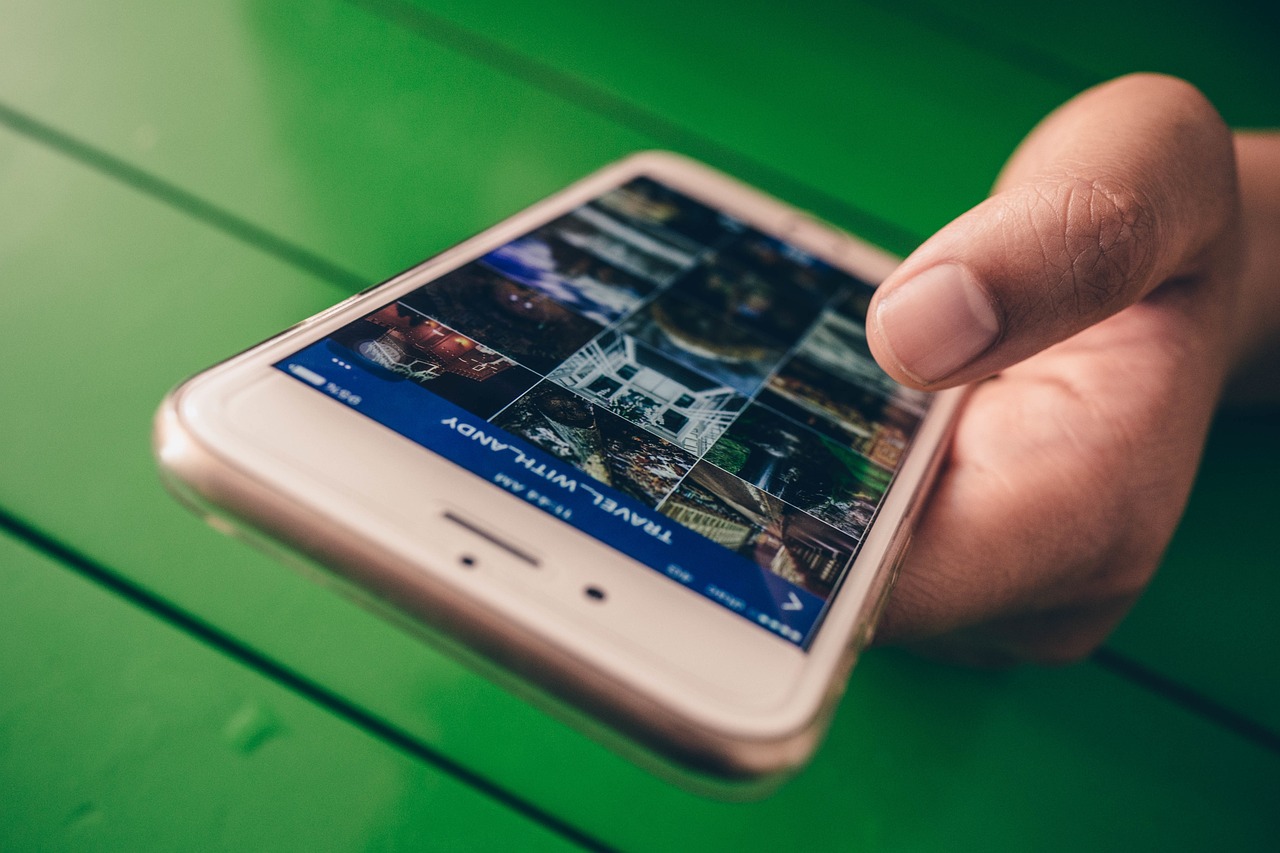How to Use Gadgets to Track Your Sleeping Patterns
Are you tired of waking up groggy and feeling exhausted throughout the day? Do you struggle to get a good night's sleep and wonder how you can improve your sleep quality? Using gadgets to track your sleeping patterns might just be the solution you've been looking for. By harnessing the power of technology, you can gain valuable insights into your sleep habits and make positive changes to enhance your overall well-being.

The Importance of Tracking Sleep
Sleep tracking plays a crucial role in understanding and improving our overall well-being. By monitoring our sleep patterns, we can uncover valuable insights into our nighttime habits and make necessary adjustments for better sleep quality. Tracking sleep is not just about the hours spent in bed; it's about the quality of rest we get and how it impacts our daily performance. Imagine having a personal sleep coach that guides you towards a more rejuvenating and energizing sleep experience.

Types of Sleep Tracking Gadgets
When it comes to monitoring your sleep patterns, there are various types of gadgets available that can provide valuable insights into your nightly rest. One popular option is smartwatches, which often come equipped with sleep tracking features that monitor your movement and heart rate during the night. These devices can offer details on your sleep duration, quality, and even provide insights into disturbances that may be affecting your rest.
Another common type of sleep tracking gadget is a dedicated sleep tracker. These devices are specifically designed to monitor your sleep patterns throughout the night, offering detailed reports on your sleep stages and any interruptions you may experience. Some sleep trackers even come with advanced features like snoring detection and room environment monitoring to provide a comprehensive analysis of your sleep quality.
Additionally, there are various apps available for smartphones that can turn your device into a portable sleep tracker. These apps use the accelerometer and microphone in your phone to track your movements and sounds while you sleep, providing data on your sleep cycles and any disturbances. While not as advanced as dedicated devices, sleep tracking apps can still offer valuable information to help you understand your sleep habits.

Features to Look for in Sleep Tracking Gadgets
This article explores the benefits of using technology and gadgets to monitor and improve your sleep quality. Learn about different devices and apps that can help you track your sleeping patterns for better health and well-being.
Understanding the significance of monitoring your sleep patterns can lead to better overall health and productivity. Discover how tracking your sleep can help identify issues and improve your quality of life.
Explore various gadgets such as smartwatches, sleep trackers, and apps designed to monitor different aspects of your sleep, including duration, quality, and disturbances. Learn how these devices can provide valuable insights into your sleep habits.
When choosing a sleep tracking gadget, several key features can enhance your experience. Accuracy is crucial to ensure reliable data collection. Comfort is essential for wearing the device throughout the night without disruptions. Battery life should be sufficient to cover your entire sleep duration, and data analysis capabilities can provide meaningful insights into your sleep patterns.
Learn how to interpret the data collected by sleep tracking gadgets and use it to make positive changes to your sleep routine. Discover tips on adjusting your habits for better sleep quality and overall well-being.
Explore the advantages of regularly tracking your sleep patterns, including improved sleep quality, better energy levels, enhanced mood, and overall health benefits. Understand how monitoring your sleep can lead to a healthier lifestyle.
Acknowledge the potential challenges and limitations of relying on sleep tracking gadgets, such as accuracy issues, user compliance, and data interpretation. Learn how to overcome these obstacles for a more effective sleep tracking experience.
Discover practical tips on incorporating sleep tracking into your daily schedule and making the most out of the data collected. Learn how to establish healthy sleep habits and optimize your sleep patterns for better rest.
Explore emerging trends in sleep tracking technology, such as advanced sensors, artificial intelligence, and personalized insights. Learn about the future possibilities of using gadgets to track and improve your sleeping patterns.

Using Sleep Data to Improve Your Sleep
Using sleep data collected by tracking gadgets can be a powerful tool in improving your sleep quality. By analyzing the information provided, you can gain valuable insights into your sleep patterns and make informed decisions to enhance your rest. For example, if you notice that you consistently have interruptions in your sleep cycle at a certain time each night, you can adjust your bedtime routine or environment to minimize these disturbances. Understanding your sleep data allows you to identify trends and make targeted changes to optimize your sleep experience.

Benefits of Monitoring Your Sleep Patterns
Monitoring your sleep patterns can bring a multitude of benefits to your overall well-being. By using gadgets to track your sleep, you gain valuable insights that can lead to improved sleep quality, better energy levels, enhanced mood, and a healthier lifestyle. Understanding your sleep patterns allows you to identify any disturbances or issues that may be affecting the quality of your rest. With this knowledge, you can make informed decisions to optimize your sleep routine for maximum benefit.
One of the key advantages of monitoring your sleep patterns is the ability to detect patterns and trends over time. By consistently tracking your sleep data, you can identify any recurring issues or improvements in your sleep quality. This information empowers you to make targeted adjustments to your habits and environment to enhance your overall sleep experience.
Moreover, tracking your sleep patterns can provide you with a deeper understanding of how your lifestyle choices impact your rest. By correlating your sleep data with factors such as exercise, diet, and stress levels, you can gain valuable insights into what contributes to a good night's sleep. This knowledge enables you to make lifestyle changes that positively influence your sleep quality and overall health.
Additionally, monitoring your sleep patterns can help you establish a consistent sleep schedule and bedtime routine. By tracking your sleep duration and quality, you can determine the optimal amount of rest your body needs to function at its best. This information allows you to prioritize sleep and create a bedtime routine that promotes relaxation and restful sleep, leading to improved overall well-being.
Furthermore, tracking your sleep patterns can serve as a motivational tool to stay committed to healthy sleep habits. Seeing tangible data on your sleep quality and duration can reinforce the importance of prioritizing rest and encourage you to maintain positive sleep practices. By monitoring your sleep patterns consistently, you can stay motivated to make choices that support better sleep and overall health.

Challenges and Limitations of Sleep Tracking Gadgets
When it comes to using sleep tracking gadgets, there are certain challenges and limitations that users may encounter. One of the primary issues is the accuracy of the data collected by these devices. While most gadgets strive to provide precise information about your sleep patterns, there can be instances of inaccuracies due to various factors such as movement during sleep or environmental disturbances.
Another challenge is user compliance, as individuals may forget to wear their sleep tracking devices regularly or may not follow the recommended usage instructions. This can lead to gaps in data collection, making it difficult to obtain a comprehensive overview of your sleep habits over time.
Data interpretation can also pose a challenge for users, especially those who are not familiar with analyzing sleep data. Understanding the metrics and graphs presented by sleep tracking gadgets may require some level of knowledge or guidance to derive meaningful insights and make informed decisions about improving sleep quality.
To overcome these challenges, it is essential to stay consistent with wearing and using your sleep tracking gadget, ensuring that you follow the instructions provided by the manufacturer. Additionally, seeking guidance from healthcare professionals or sleep experts can help in interpreting the data accurately and implementing effective changes to your sleep routine.

Integrating Sleep Tracking Into Your Daily Routine
Integrating sleep tracking into your daily routine can significantly improve your overall well-being by providing valuable insights into your sleep patterns. By establishing a consistent schedule for using sleep tracking gadgets, you can effectively monitor your sleep quality and make informed decisions to optimize your rest.
One way to seamlessly incorporate sleep tracking into your daily routine is to set a specific time each day to review your sleep data. This could be in the morning when you wake up or in the evening before going to bed. By regularly checking your sleep patterns, you can track your progress and identify any areas that may need improvement.
Additionally, consider using the data collected from your sleep tracking device to adjust your bedtime routine. For example, if you notice that certain activities before bed affect your sleep negatively, you can make changes to promote better rest. This could include avoiding screen time, creating a calming bedtime ritual, or adjusting your sleep environment for optimal comfort.
Creating a sleep-friendly environment in your bedroom can also enhance the effectiveness of sleep tracking. Ensure that your room is dark, quiet, and at a comfortable temperature to promote restful sleep. By optimizing your sleep environment, you can improve the accuracy of the data collected by your tracking device and make more informed decisions about your sleep habits.
Furthermore, integrating sleep tracking into your daily routine can help you establish healthy sleep habits over time. By consistently monitoring your sleep patterns and making adjustments as needed, you can cultivate a more balanced and restful sleep routine. This proactive approach to sleep tracking can lead to long-term benefits for your overall health and well-being.

Future Trends in Sleep Tracking Technology
As technology continues to advance, the future of sleep tracking technology holds exciting possibilities for improving our overall well-being. One of the emerging trends in this field is the integration of advanced sensors into sleep tracking devices. These sensors can provide more detailed and accurate data on various aspects of sleep, such as sleep stages, heart rate variability, and breathing patterns. By leveraging this technology, users can gain deeper insights into their sleep quality and make more informed decisions to enhance their rest.
Another key trend in sleep tracking technology is the use of artificial intelligence (AI) algorithms to analyze sleep data and provide personalized recommendations. AI-powered sleep trackers can learn from individual sleep patterns and behaviors, offering tailored suggestions to optimize sleep quality. This personalized approach can help users identify specific factors affecting their sleep and implement targeted strategies for improvement.
Furthermore, the future of sleep tracking technology is likely to focus on providing users with actionable insights and practical solutions to address sleep-related issues. By combining data analytics with user-friendly interfaces, upcoming sleep tracking gadgets aim to empower individuals to take control of their sleep health effectively. These devices may offer features such as sleep coaching programs, sleep environment recommendations, and sleep hygiene tips to support users in achieving better sleep outcomes.
Frequently Asked Questions
- What are the benefits of tracking my sleep patterns?
Tracking your sleep patterns can help you identify issues, improve your sleep quality, enhance your overall health, increase productivity, and boost your mood and energy levels.
- What types of gadgets can I use to track my sleep?
You can use smartwatches, sleep trackers, and various apps designed specifically for monitoring different aspects of your sleep, such as duration, quality, disturbances, and more.
- What features should I look for in a sleep tracking gadget?
Key features to consider include accuracy, comfort, battery life, data analysis capabilities, ease of use, and compatibility with your lifestyle and preferences.
- How can I use the data collected from sleep tracking gadgets to improve my sleep?
By analyzing the data and identifying patterns, you can make informed decisions to adjust your sleep habits, create a better sleep environment, and optimize your routine for improved rest.
- What are the potential challenges of using sleep tracking gadgets?
Challenges may include accuracy issues, user compliance, data interpretation, and the need for consistent usage. Overcoming these obstacles may require patience and adjustments to your tracking routine.



















